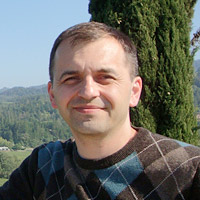Science as a tool for forging co-operation

We hope to publicize this interaction to demonstrate the ability of science to bring people together even when the political situation works against them...
A Keele chemistry lecturer has obtained funds for a teaching/research exchange as a tool for forging co-operation between Serbia and Albania, two countries with a history of conflict.
The conflict is such that a recent football match between the two countries, as part of qualification for European championship, had to be abandoned before half-time (http://www.bbc.co.uk/sport/0/football/29624259).
Now Dr Aleksandar Radu, as part of University-wide initiative, is trying to use science as a tool for forging co-operation between the two countries. He has obtained funds for a teaching/research exchange between Keele and the University of Belgrade, Serbia, and the University of Tirana, Albania.
He says: "The idea behind the project is to have staff from Keele visiting Serbia and Albania, as well as staff from Albania and Serbia visiting Keele. Both senior staff (professors) and junior staff (PhD students) will visit Keele. We will work on a joint scientific research project, which will depend on the involvement of all three parties. By doing that we hope we can achieve a nice co-operation.
"Moreover, we hope to publicize this interaction to demonstrate the ability of science to bring people together even when the political situation works against them. In the close future we are also hoping to involve Kosovo in the co-operation. This will also have significant political implications (hopefully positive) due to the relationship between Serbia and Kosovo."
Dr Radu says: "The project will focus on addressing some of the issues with development of simple, small, cheap, yet ultra-sensitive sensors for the detection of nitrogen-based nutrients in soils and slurry. Both Serbia and Albania are in need of low-cost and sustainable technologies in AgriFood sector. Efficient food production that relies on sustainable resources is seen as priority in both countries and we think that the ability to monitor nitrogen-based nutrients will enable effective resource management."

